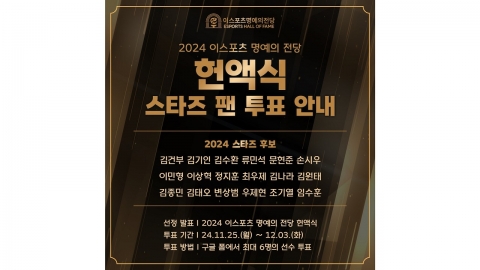"Why don't you keep your promise?" Sado Mine Memorial Ceremony, there was no apology.
이미지 확대 보기

YTN Radio (FM 94.5) [YTN News FM Wise Radio Life]
□ Broadcast Date: November 26, 2024 (Tue)
□ Host: Announcer Park Gui-bin
□ Castor: Jeong Hye-kyung, Representative of the Japan Forced Mobilization Peace Research Society
* The text below may differ from the actual broadcast content, so please check the broadcast for more accurate information.
□ Broadcast Date: November 26, 2024 (Tue)
□ Host: Announcer Park Gui-bin
□ Castor: Jeong Hye-kyung, Representative of the Japan Forced Mobilization Peace Research Society
* The text below may differ from the actual broadcast content, so please check the broadcast for more accurate information.
◆ Announcer Park Gui-bin (hereinafter referred to as Park Gui-bin): The Japanese government will hold an annual Sado mine memorial ceremony to our government for the UNESCO World Heritage List of Sado mine. I made a promise. The first memorial service was held on the 24th, but the Japanese government attended the site, and the Korean side was absent. In addition, there was no apology for the past or recognition of coercion on the spot. In the end, the Korean government held a memorial ceremony for mine workers separately from the bereaved families and mourned the sacrifices of forced laborers. Let's find out what's relevant. You are the only Sado mine researcher in Korea. Let's call Jeong Hye-kyung, the representative of the Japan Compulsory Mobilization Peace Research Association. Hello, CEO.
◇ Jeong Hye-kyung, Representative of the Japan Forced Mobilization Peace Research Society (hereinafter referred to as Jeong Hye-kyung): Hello.
◆Park VIP: Last 24th. Japan's half-length memorial service actually promised to hold it every year when it was registered as a UNESCO World Heritage Site, but the results suggest that the Japanese government did not keep its promise.
◇Jeong Hye-kyung: That's right. So, in form, it seems that he kept his promise, but in fact, he made the situation so that he could not keep his promise because he threw a ball that Korea could not receive.
◆Park Gui-bin: But this memorial service should have been held last July, but has this been delayed?
◇Jeong Hye-kyung: That's right. Given the situation in Korea, it probably took time to find the bereaved family, but there was the election of Japan's prime minister. I had a general election schedule. I think it's been this late considering that.
◆Park Gui-bin: I see. However, the Japanese government announced that a vice minister-level official with a history of visiting Yasukuni shrine would attend the memorial service, and the Korean government declared that it would not participate. How do you see this?
◇Jeong Hye-kyung: I think it's a relief. The reason for this is not just the worship of the Yasukuni shrine, but the entire preparation process was previously a problem. For example, isn't this a memorial service? It's a memorial service for the bereaved family, and we're going to do it as a celebration, and it's not because we don't have any costs, but because we're holding the perpetrators accountable, and there's no agreement on such things and eulogies, so this sets a bad precedent if you're present. So, it's fortunate that you don't attend, but from a very visible point of view, it's very sorry that the bereaved families are now forced to hold a brief memorial service on the spot on the open air.
◆Park Gui-bin: That's right. According to the memorial service this time, there was no acknowledgement or apology for forced mobilization.
◇Jeong Hye-kyung: That's the problem now. The reason why this is a problem is that why isn't there a precedent that has already been done in the relationship between Korea and Japan? However, acknowledging and apologizing for forced mobilization at such a memorial service or a memorial service in June is a phrase that has already been included at events between the Korean and Japanese governments since 2005. And now, the recognition of forced mobilization is also an issue included in the decision when registering the Meiji Industrial Heritage as a World Heritage Site in 2015. So, it's not about putting in new things, it's about doing what's existing, but private organizations lead it, so I think it's very problematic that I didn't mention it in this way.
◆Park Gui-bin: So while watching the memorial service being held this time, many media outlets even said, 'Our government has been stabbed in the back.' What do you think, CEO?
◇Jeong Hye-kyung: Of course, we have no choice but to make that evaluation. Even so, I think it was possible because the media strongly pointed out that I was not able to attend this time.
◆Park Gui-bin: Didn't the Japanese government promise you when the Sado Mine was listed as a UNESCO World Heritage Site? But even at that time, I think I didn't have the will to keep it in the first place. How do you see it?
◇Jeong Hye-kyung: It's not the first time. It was the same when I listed the Meiji Industrial Heritage site in 2015. Even then, the World Heritage Committee's General Assembly recognized coercion. However, on that day, Foreign Minister Kishida denied it and has not implemented the World Heritage decision to this day. But these things can't be canceled once they're registered. I think it's my behavior to know that.
◆Park Gui-bin: The Sado Mine. During the Japanese colonial period, more than 1,500 people were forcibly taken and labored, and I think I heard this place is quite notorious. What records do you have at that time?
◇Jeong Hye-kyung: There are a lot of records. I revealed this through a book last year. However, if you classify the records, there are records written by the Japanese government or companies that are the main agents of mobilization. There are records left by victims, records from the Korean government, and more than 20 records. Now, if you look at the representative example, there is a report that the Japanese public security authorities crack down on, such as the special monthly report currently on display at the Aikawa Local Museum, and then the Japanese government held a memorial service for the dead. There is such data in the 41st and 42nd years of Japanese colonial rule, and there is a report on how to manage these Koreans to Niigata Prefecture, a higher institution, and there are many records about how much they suffered from pneumoconiosis.
◆Park Gui-bin: That's how the records remain, and when they were listed as a UNESCO World Heritage Site, Japan decided to establish this exhibition hall that they promised. I heard that things like forced labor have to be expressed in there, but that's not expressed right now either.
◇Jeong Hye-kyung: That's right. There is an English panel next to it that allows visitors to misunderstand by describing it together so that they cannot tell whether it happened in the exhibition or in ordinary times. There's a term there called "people's conscription" in Japanese, but it's not used as a conscription, which is the term conscription, but it's just that they do it as if they were employed, or that there was a record like this, but they played a lot of jokes like this. So there are quite a few things that need to be revised.
◆Park Gui-bin: So anyway, it should be considered that both promises were not kept, but from our point of view, this place was actually listed. The fact that it is registered as a World Heritage Site itself is a little difficult to admit, but isn't it that it has been registered and the expression of coercion should be added to it? First of all, it's registered, but please point out the meaning of putting it in.
◇Jeong Hye-kyung: That's because this World Heritage Site is not a matter between Korea and Japan. It's aimed at citizens around the world. So, it shows the historical nature of the site to global citizens. That's why the World Heritage Committee decided to have the full history described. That's why we need to mention all of this so that citizens around the world can immediately recognize the historical nature through this site. So if you don't do that, you'll end up deceiving the world's citizens.
◆Park Gui Bin: That's right. Exactly that needs to be explained. Isn't this literally a World Heritage Site right now?
◇Jeong Hye-kyung: It's not a diplomatic issue between Korea and Japan. This is an opportunity to share the historical nature of global citizens, which is why I think we should make stronger demands on Japan.
◆Park Gui-bin: That's right. However, as it is being revealed as a result now that it is not a diplomatic issue between Korea and Japan when you say it now, but I don't think it means it anymore, so isn't the Korean government pointing out whether this was a good diplomatic move? How do you see it?
◇Jeong Hye-kyung: So I think the problem is that the Korean government recognized it only as a diplomatic issue. Since this is now a World Heritage Site, it should have been recognized as an opportunity for global citizens to share historicality, but since the cooperation between Korea and Japan is emphasized, I think the part of tolerance has been strongly revealed.
◆Park Gui-bin: What do you think the government's response should be?
◇Jeong Hye-kyung: What the Korean government needs to do now is... First of all, we need to make it known that Japan is a perpetrator country. However, the perpetrator country does not have the ability to admit and practice the offense as the perpetrator country itself. In the case of Germany, neighboring countries and affected countries actively took part in driving the perpetrators. So what we need to do is to play a role in strongly driving the perpetrator country as a victim country, and for that, there needs to be some continuity. So, when it was registered as a World Heritage Site in July, the media and opposition parties strongly raised the issue, but if the level is adjusted again, this will happen again and it will happen again in a few years, so I think a continuous response system should be prepared.
◆Park Gui-bin: The problem is that there are concerns that this can happen repeatedly.
◇Jeong Hye-kyung: It's being repeated. Following the year 2015.
◆Park Guivin: Aren't there several industrial heritages that you want to list as a World Heritage Site?
◇Jeong Hye-kyung: That's right.
◆Park Gui-bin: Not too long ago, I saw the news that ASIO Mine is also pushing for additional registration. What kind of place is this?
◇Jeong Hye-kyung: As of now, the ASIO Dong Mine and the Kurobe Dam are now seen as preliminary lists for future listing, among which the ASIO Mine seems unlikely because of the serious environmental problems. There's a possibility of Kurobe Dam. This is an environmentally friendly dam in a very nice tourist destination called the Kita Alps in Toyama. So, it's also in line with the global trend of conservation, so I think they'll probably list it, but this dam is very large. Among them, the 3rd Dam and the 3rd Dam are the targets to be registered immediately, and it is also the site of forced mobilization of Koreans. However, there is no research on this at all in Japan and Korea, and it is very difficult to confirm the victims. Because this is a civil engineering site, it is a subcontracting structure, so even if we found the original parent company, these people didn't actually order us to work as Koreans. So, it is very ambiguous to hold the responsibility of mobilization companies in that regard, and as of now, I think there are about 33 people who have applied to the forced mobilization committee, but this is also a place where it is very difficult for us to respond with historical characteristics because we cannot confirm it now. However, we judge that there is a site of forced mobilization.
◆Park Gui-bin: Lastly, CEO, please say a word why we need to remember our painful history of forced labor.
◇Jeong Hye-kyung: This is because we are sick, but if we don't remember this, our painful history can be repeated again. It's because we can't keep anti-war peace. So, to maintain our peaceful and prosperous daily lives, there has been a painful history like this in the past. I think it's important to know clearly that we've overcome it well.
◆Park Gui-bin: Dear listener, 'What on earth does Japan think of our country? Please do your best to come up with measures. Please. ’. Listeners, why on earth do you make history that you want to erase? But you have to take responsibility and apologize until the end for what you did. ’. Many people are listening to the CEO and giving opinions from the listeners. We'll stop here today's talk. Thank you.
◇Jeong Hye-kyung: Thank you.
◆Park Gui-bin: I was Jeong Hye-kyung, the head of the Japan Compulsory Mobilization Peace Research Association.
◇ Jeong Hye-kyung, Representative of the Japan Forced Mobilization Peace Research Society (hereinafter referred to as Jeong Hye-kyung): Hello.
◆Park VIP: Last 24th. Japan's half-length memorial service actually promised to hold it every year when it was registered as a UNESCO World Heritage Site, but the results suggest that the Japanese government did not keep its promise.
◇Jeong Hye-kyung: That's right. So, in form, it seems that he kept his promise, but in fact, he made the situation so that he could not keep his promise because he threw a ball that Korea could not receive.
◆Park Gui-bin: But this memorial service should have been held last July, but has this been delayed?
◇Jeong Hye-kyung: That's right. Given the situation in Korea, it probably took time to find the bereaved family, but there was the election of Japan's prime minister. I had a general election schedule. I think it's been this late considering that.
◆Park Gui-bin: I see. However, the Japanese government announced that a vice minister-level official with a history of visiting Yasukuni shrine would attend the memorial service, and the Korean government declared that it would not participate. How do you see this?
◇Jeong Hye-kyung: I think it's a relief. The reason for this is not just the worship of the Yasukuni shrine, but the entire preparation process was previously a problem. For example, isn't this a memorial service? It's a memorial service for the bereaved family, and we're going to do it as a celebration, and it's not because we don't have any costs, but because we're holding the perpetrators accountable, and there's no agreement on such things and eulogies, so this sets a bad precedent if you're present. So, it's fortunate that you don't attend, but from a very visible point of view, it's very sorry that the bereaved families are now forced to hold a brief memorial service on the spot on the open air.
◆Park Gui-bin: That's right. According to the memorial service this time, there was no acknowledgement or apology for forced mobilization.
◇Jeong Hye-kyung: That's the problem now. The reason why this is a problem is that why isn't there a precedent that has already been done in the relationship between Korea and Japan? However, acknowledging and apologizing for forced mobilization at such a memorial service or a memorial service in June is a phrase that has already been included at events between the Korean and Japanese governments since 2005. And now, the recognition of forced mobilization is also an issue included in the decision when registering the Meiji Industrial Heritage as a World Heritage Site in 2015. So, it's not about putting in new things, it's about doing what's existing, but private organizations lead it, so I think it's very problematic that I didn't mention it in this way.
◆Park Gui-bin: So while watching the memorial service being held this time, many media outlets even said, 'Our government has been stabbed in the back.' What do you think, CEO?
◇Jeong Hye-kyung: Of course, we have no choice but to make that evaluation. Even so, I think it was possible because the media strongly pointed out that I was not able to attend this time.
◆Park Gui-bin: Didn't the Japanese government promise you when the Sado Mine was listed as a UNESCO World Heritage Site? But even at that time, I think I didn't have the will to keep it in the first place. How do you see it?
◇Jeong Hye-kyung: It's not the first time. It was the same when I listed the Meiji Industrial Heritage site in 2015. Even then, the World Heritage Committee's General Assembly recognized coercion. However, on that day, Foreign Minister Kishida denied it and has not implemented the World Heritage decision to this day. But these things can't be canceled once they're registered. I think it's my behavior to know that.
◆Park Gui-bin: The Sado Mine. During the Japanese colonial period, more than 1,500 people were forcibly taken and labored, and I think I heard this place is quite notorious. What records do you have at that time?
◇Jeong Hye-kyung: There are a lot of records. I revealed this through a book last year. However, if you classify the records, there are records written by the Japanese government or companies that are the main agents of mobilization. There are records left by victims, records from the Korean government, and more than 20 records. Now, if you look at the representative example, there is a report that the Japanese public security authorities crack down on, such as the special monthly report currently on display at the Aikawa Local Museum, and then the Japanese government held a memorial service for the dead. There is such data in the 41st and 42nd years of Japanese colonial rule, and there is a report on how to manage these Koreans to Niigata Prefecture, a higher institution, and there are many records about how much they suffered from pneumoconiosis.
◆Park Gui-bin: That's how the records remain, and when they were listed as a UNESCO World Heritage Site, Japan decided to establish this exhibition hall that they promised. I heard that things like forced labor have to be expressed in there, but that's not expressed right now either.
◇Jeong Hye-kyung: That's right. There is an English panel next to it that allows visitors to misunderstand by describing it together so that they cannot tell whether it happened in the exhibition or in ordinary times. There's a term there called "people's conscription" in Japanese, but it's not used as a conscription, which is the term conscription, but it's just that they do it as if they were employed, or that there was a record like this, but they played a lot of jokes like this. So there are quite a few things that need to be revised.
◆Park Gui-bin: So anyway, it should be considered that both promises were not kept, but from our point of view, this place was actually listed. The fact that it is registered as a World Heritage Site itself is a little difficult to admit, but isn't it that it has been registered and the expression of coercion should be added to it? First of all, it's registered, but please point out the meaning of putting it in.
◇Jeong Hye-kyung: That's because this World Heritage Site is not a matter between Korea and Japan. It's aimed at citizens around the world. So, it shows the historical nature of the site to global citizens. That's why the World Heritage Committee decided to have the full history described. That's why we need to mention all of this so that citizens around the world can immediately recognize the historical nature through this site. So if you don't do that, you'll end up deceiving the world's citizens.
◆Park Gui Bin: That's right. Exactly that needs to be explained. Isn't this literally a World Heritage Site right now?
◇Jeong Hye-kyung: It's not a diplomatic issue between Korea and Japan. This is an opportunity to share the historical nature of global citizens, which is why I think we should make stronger demands on Japan.
◆Park Gui-bin: That's right. However, as it is being revealed as a result now that it is not a diplomatic issue between Korea and Japan when you say it now, but I don't think it means it anymore, so isn't the Korean government pointing out whether this was a good diplomatic move? How do you see it?
◇Jeong Hye-kyung: So I think the problem is that the Korean government recognized it only as a diplomatic issue. Since this is now a World Heritage Site, it should have been recognized as an opportunity for global citizens to share historicality, but since the cooperation between Korea and Japan is emphasized, I think the part of tolerance has been strongly revealed.
◆Park Gui-bin: What do you think the government's response should be?
◇Jeong Hye-kyung: What the Korean government needs to do now is... First of all, we need to make it known that Japan is a perpetrator country. However, the perpetrator country does not have the ability to admit and practice the offense as the perpetrator country itself. In the case of Germany, neighboring countries and affected countries actively took part in driving the perpetrators. So what we need to do is to play a role in strongly driving the perpetrator country as a victim country, and for that, there needs to be some continuity. So, when it was registered as a World Heritage Site in July, the media and opposition parties strongly raised the issue, but if the level is adjusted again, this will happen again and it will happen again in a few years, so I think a continuous response system should be prepared.
◆Park Gui-bin: The problem is that there are concerns that this can happen repeatedly.
◇Jeong Hye-kyung: It's being repeated. Following the year 2015.
◆Park Guivin: Aren't there several industrial heritages that you want to list as a World Heritage Site?
◇Jeong Hye-kyung: That's right.
◆Park Gui-bin: Not too long ago, I saw the news that ASIO Mine is also pushing for additional registration. What kind of place is this?
◇Jeong Hye-kyung: As of now, the ASIO Dong Mine and the Kurobe Dam are now seen as preliminary lists for future listing, among which the ASIO Mine seems unlikely because of the serious environmental problems. There's a possibility of Kurobe Dam. This is an environmentally friendly dam in a very nice tourist destination called the Kita Alps in Toyama. So, it's also in line with the global trend of conservation, so I think they'll probably list it, but this dam is very large. Among them, the 3rd Dam and the 3rd Dam are the targets to be registered immediately, and it is also the site of forced mobilization of Koreans. However, there is no research on this at all in Japan and Korea, and it is very difficult to confirm the victims. Because this is a civil engineering site, it is a subcontracting structure, so even if we found the original parent company, these people didn't actually order us to work as Koreans. So, it is very ambiguous to hold the responsibility of mobilization companies in that regard, and as of now, I think there are about 33 people who have applied to the forced mobilization committee, but this is also a place where it is very difficult for us to respond with historical characteristics because we cannot confirm it now. However, we judge that there is a site of forced mobilization.
◆Park Gui-bin: Lastly, CEO, please say a word why we need to remember our painful history of forced labor.
◇Jeong Hye-kyung: This is because we are sick, but if we don't remember this, our painful history can be repeated again. It's because we can't keep anti-war peace. So, to maintain our peaceful and prosperous daily lives, there has been a painful history like this in the past. I think it's important to know clearly that we've overcome it well.
◆Park Gui-bin: Dear listener, 'What on earth does Japan think of our country? Please do your best to come up with measures. Please. ’. Listeners, why on earth do you make history that you want to erase? But you have to take responsibility and apologize until the end for what you did. ’. Many people are listening to the CEO and giving opinions from the listeners. We'll stop here today's talk. Thank you.
◇Jeong Hye-kyung: Thank you.
◆Park Gui-bin: I was Jeong Hye-kyung, the head of the Japan Compulsory Mobilization Peace Research Association.
[Copyright holder (c) YTN Unauthorized reproduction, redistribution and use of AI data prohibited]
Editor's Recomended News
-
Former Chairman Sohn Tae-seung of Woori Financial Group will be arrested...a decision as early as today

-
The lawsuit on the main issue of 'Nullibility of Yonsei Unwritten Essays' is also in full swing...Will they make a quick decision?

-
"Mungabee's son, 100% inheritance right"...Jung Woo-sung, shall we make an additional announcement? [Anchor Report]
!["Mungabee\'s son, 100% inheritance right"...Jung Woo-sung, shall we make an additional announcement? [Anchor Report]](//image.ytn.co.kr/general/jpg/2024/1126/202411261648552732_h.jpg)
The Lastest News
-
"UK Labour government doesn't keep its promise"...2.58 million signatures for early general election petition
-
Sixteen missing yacht missing in Egypt's Red Sea search for second day
-
South Korea and Lithuania "cooperation to halt illegal military cooperation between Russia and North Korea"
-
"Necessary establishment of Gyeongbuk National Medical University"...Ruling party "strong support"


!["Mungabee\'s son, 100% inheritance right"...Jung Woo-sung, shall we make an additional announcement? [Anchor Report]](http://image.ytn.co.kr/general/jpg/2024/1126/202411261648552732_h.jpg)



![[Yetterview] Dixon's youth who overcomes wandering for 2 years and 9 months and runs again.](https://image.ytn.co.kr/general/jpg/2024/1126/202411261616521790_h.jpg)


